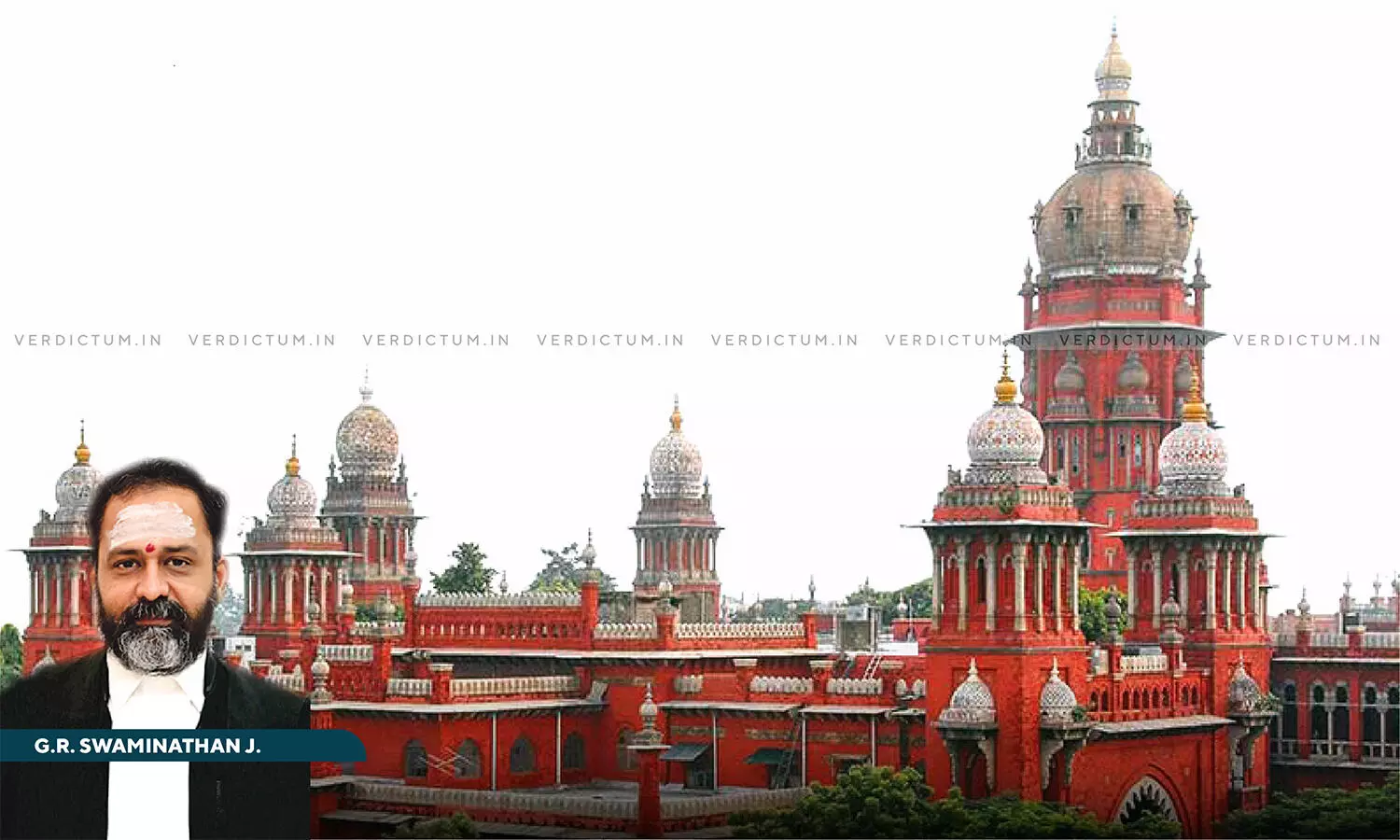
Order Granting Leave U/S 92 CPC Is A Judicial Order & Not An Administrative Order: Madras HC
 |
|The Madras High Court observed that order granting leave under Section 92 of CPC is a judicial order and not an administrative order and that it is amenable to revisional jurisdiction.
The Court was hearing a Civil Revision Petition filed under Article 227 of the Constitution of India, to set aside the order passed in an unnumbered suit on the file of the Principal District Judge.
The bench of Justice GR Swaminathan observed, “…order granting leave under Section 92 of CPC is a judicial order and not an administrative order and that it is amenable to revisional jurisdiction.”
Advocate TA Ebenezer appeared for the Appellant and Advocate G Karnan appeared for the Respondent.
In the present case, the respondents filed a suit under Order 7 Rule 1, read with Section 92 of the CPC, seeking to establish a scheme for the administration of the Madha Trust. They also filed an I.A. to obtain leave to proceed with the suit. After hearing both sides, leave was granted, however, a Civil Revision Petition was filed challenging the order, arguing that the application should not have been allowed because the Madha Trust was not impleaded, and the applicants had not demonstrated their interest in the Trust. The Petitioner sought to set aside the order granting leave, but the Respondents countered that orders granting leave under Section 92 CPC are administrative, not judicial, and cannot be challenged under Section 115 CPC or Article 227 of the Constitution.
The Court mentioned the decision in 2012 (2) KHC 502 (Church of South India Vs. John), and quoted, “to say that the order allowing or declining leave under Section 92 of the Code is an administrative order, which is not amenable to judicial review is per se wrong”.
The Court observed, “When leave is granted, though such leave obtained is not final and it is still open to challenge in the suit, the substantive rights of the parties are being affected if not of the petitioners who seek such leave, but, that of the adversary, which is called upon to face the litigation, and, there is in fact an order deciding a case by the court which is amenable to further challenge by way of revision or under Article 227 of the Constitution of India…”
The Court further relied on the decision in AIR 1988 MADRAS 1 (S.Guhan Vs Rukmini Devi Arundale) where according to the Court it was held, “in a suit under Section 92 CPC the Trust is a necessary party and if it is not impleaded as a party to the proceeding, the suit deserves to be dismissed.
Accordingly, the Court set aside the impugned order and allowed the Civil Revision Petition.
Cause Title: Maria Selvam v. V.S.Jeyapandi
Click here to read/download Judgment